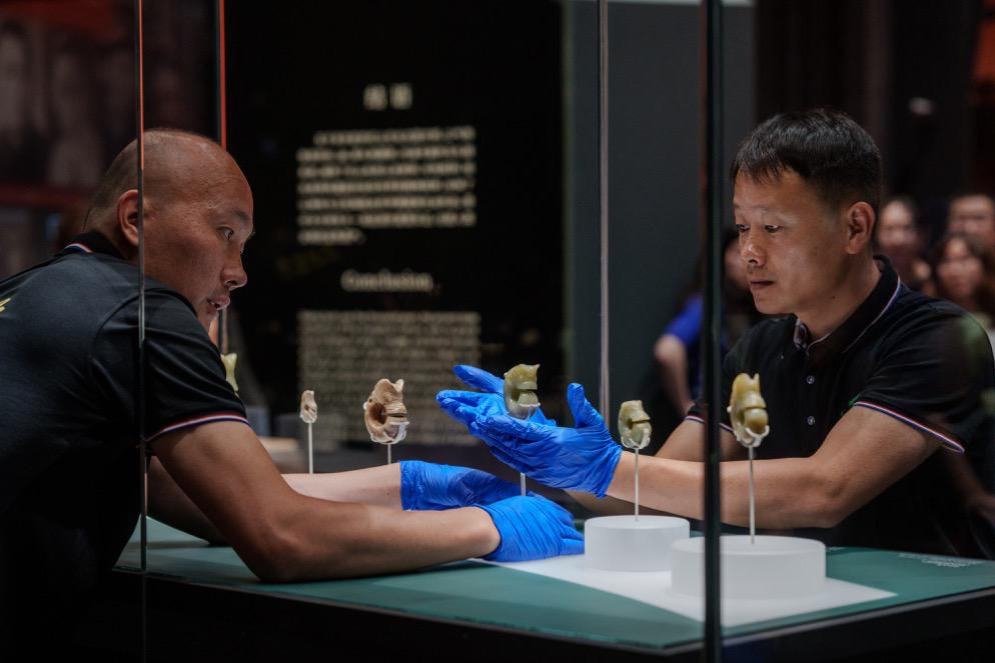Professionals sniff out pungent smells in stinky tofu blocks


In a steel sink with liquid the color of tarmac gurgling in it, Zhou Chengrong slowly lowered his hands into it and gingerly fished out a chunk of bean curd with a gray hue on its edges.
The signature funky odor from hours of fermentation in a herb and spice-based brine "hit" Zhou in the nose.
However, the 44-year-old remained expressionless as he held the slab in his palms and took a deep breath to examine the smell.
As weird as it sounds, this is an essential part of Zhou's daily job: to sniff out pungent bean curd smells point on - a sign of sufficient fermentation.
Selected batches of bean curds will then be transported for cleaning and packing at the factory in Changsha, Hunan province.
In recent years, Hunan, in Central China, has seen a new job category growing in its famed food scene.
Jumeihe Soybean Products Co, Zhou's employer, is one of several stinky tofu producers in the region that have rolled out recruitment notices in search of qualified "masters in smelling odor".
The aptly-named profession can trace its roots to sniffers responsible for identifying odorous particles in the air during environmental inspections, according to Tang Fang who oversees production at the company.
"More accurately, they are masters in marinating," she said. "But we have coined the new title to poke fun at the fact that we work in an odor-infused environment and touch the fermented brine through mixing, blending and flipping marinated tofu all the time."
Like Zhou, most sniffers land a job in Tang's team thanks to an acute sense of smell and longstanding habits of staying away from drinking, smoking, manicure, the use of perfume and makeup.
The rigorous requirements regarding personal lifestyle choices are meant to ensure that their olfactory sensitivities are at their best when detecting degrees of fermentation in tofu blocks, which are largely based on faint distinctions in smells.
"Regular tofu attains a unique funky flavor through the fermentation process, so we have to be careful in controlling the amount of fermentation, which is the key to our production," said Tang, adding that about one in 10 frontline workers on her team are now professional sniffers.
After a new job listing was posted recently, Tang said 11 applications for the position have streamed in.
Zhou, one of the sniffers, also sometimes tears a small hole in a tofu sample and takes a peek inside to see if the brine has sunk in. This move also adds to the accuracy of his judgment.
One major downside of this job, according to Zhou, is that his body, especially his hands, have the tofu stench even though he always wears a pair of thick gloves when handling tofu products.
It is difficult to get rid of the odor, but Zhou said there are no health risk concerns.
"The brine is made entirely from natural plants, so it does no harm to people," he said.
- CPC members work against the clock to restore normal life in rain-hit Hunan
- Ceremony commemorates legendary ancestor of the Chinese civilization Fuxi
- Former KMT chair leads Taiwan delegation to honor Fuxi, Chinese culture
- Shanghai conference discusses occupational mental health in China
- Qingdao Summit strengthens global ties through multinational cooperation
- Chinese vice-premier calls for championing humanity's common values, promoting multipolar world





































